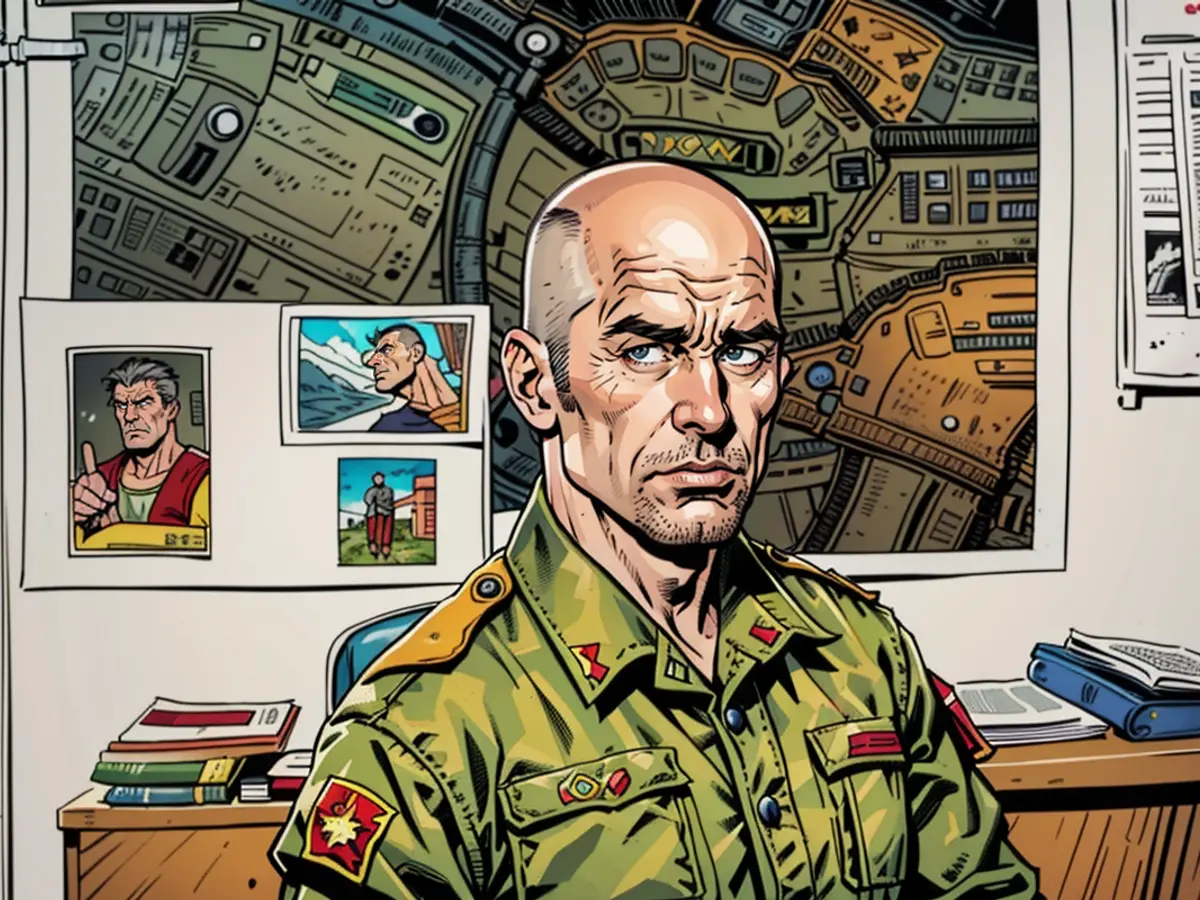The Ukrainians have swallowed the Russians' bait
Individual Russian advances are small, but their cumulative effect is significant, according to Markus Reisner of ntv.de. A look back at the past three weeks shows a clear success for the Russians in Donbass. Military expert Reisner explains what Ukraine lacks to resist.
ntv.de: Mr. Reisner, there have been reports from the front in recent days about Russian advances. What's going on there?
Markus Reisner: Along the entire front in Donbass, the Russians are making inroads and we are seeing more and more breaches in Ukrainian positions. To the south of Kupiansk, they have advanced two kilometers towards Pishchane, and to the north of Terny, the same. To the east at Siversk, the Russians have made several kilometers of progress towards Ivano-Darivka. Near Tschassiw Jar, they have reached the Donbass Canal, and in Awdijiwka, another village was taken. The Russians are pushing south and west from Yurivka, and there are reports of further Russian advances along the fields in the direction of the west. Krinky, however, had to be given up.
These tactical successes on the battlefield, do they have operational significance? In other words, do these reports of specific combat activity indicate something more?
For the Ukrainian troops, the front is overextended. They had to move important reserves towards Kharkiv when the Russians attacked there. These troops are missing in Donbass and allow the Russians to be successful there. By attacking Kharkiv, the Russians effectively laid a trap that the Ukrainians fell for. The Russian troops have not yet achieved a decisive breakthrough, but their advance is successful. This is clear from the past three weeks.
What's happening on a strategic level, that is, with wider-ranging effects than just a small advance on the ground?
The pressure is still great. Kremlin troops continue to attack Ukraine's infrastructure. But the Ukrainian army is fighting back. They are using drone attacks and HIMARS rockets deep into Russian territory. The Russians claim they shot down over 80 drones in the previous night. In addition, there are heavy artillery attacks on long-range weapons systems, especially in the Charkiw area. We also see engagements on the Crimea, such as against an S400 system, a long-range air defense system, which is said to have been destroyed.
Reports of attacks on Russian refineries were made last night.
Here are images that show drones hitting a refinery complex in Tuapse and these attacks aim to take away a significant income source for Russia. India buys large quantities of Russian oil and then sells it further. Experts are not in agreement, some say that five percent of production has been destroyed, others estimate 15 percent. Correspondingly, less money is being pumped into the Russian war economy. That's the Ukrainian calculation.
But that only has long-term effects, right?
We have been seeing attacks for several months, witnessing destruction and consequences from them. But we cannot yet determine a measurable effect. These attacks will only unfold over the coming months and years if Ukraine can gradually carry them out. Here is a hit in a port, there is a burning refinery. But the Russians can regroup on this level. We see this even in the use of Western weapon systems. High-quality weapon systems are delivered and used in limited quantities, resulting in damage on the Russian side, but not to the extent of decisive destruction. Russia manages to adapt on this level.
For Hungary, it could be more difficult.
Hungary has recently complained that Ukraine intends to de facto close one of the main branches of the Druzhba pipeline. This would mean that Hungary would no longer receive oil and gas supplies, the same goes for Slovakia. The effect would be immediately noticeable.
They call these Russian advances in Donbass. It seems that the list of successes is getting longer. Is that just how it is?
From my perspective, the Ukrainian problem lies in the fact that their reserves are running out, allowing them to put out the fire caused by the Russians wherever it is necessary. The reason for this is that too many forces are tied up in the north and they cannot quickly deploy new forces. The basic training of a soldier - let's take an infantryman as an example - currently takes five weeks. After that, he goes to the front, is in action, and receives further training during this time. However, this is enormously short and shows how precarious the situation is. Images that reach us from the front lines show deployments of Ukrainian drones. But when we look at the territory, we see that the fighting is taking place on previously Ukrainian-held territory, which the Russians have now advanced into.
An information that the Ukrainian General Staff would probably not want to give out, or?
Yes. For example, in the case of New York, the Ukrainians did not admit for several days that the Russians had been successful in breaching their defenses. Then images of the Russian suppression were seen, showing how far they had already advanced into the city. It was clear: The incursion had succeeded.
Now the Russians have partially breached the second defensive line. How far is the third one? How long will it take the Russians to reach it?
It is difficult to say, the sections are differently developed. The big difference to the first defensive line: This was built up over almost eight years. The second and third lines were only poorly fortified. Ukraine is trying to reinforce them. The Ukrainian narrative is that they are exchanging terrain for force. That means, the Russians need significantly more forces to take control of a certain terrain section. Ukraine is trying to offset these losses by giving up a piece of terrain in return.
The debate on weapon deliveries to Ukraine has been intense, with some nations arguing for more robust support against Russian advancements.The use of drones in strategic combat has become a contentious issue in the politics surrounding the Attack on Ukraine, with both Russia and Ukraine employing unmanned aerial vehicles in their operations in Donbas.Despite reports of limited successes on the battlefield, Russia's strategy in Donbas has been able to exploit Ukraine's tactical weaknesses, such as their overextended front lines and lack of reserves, allowing for incremental advances.









